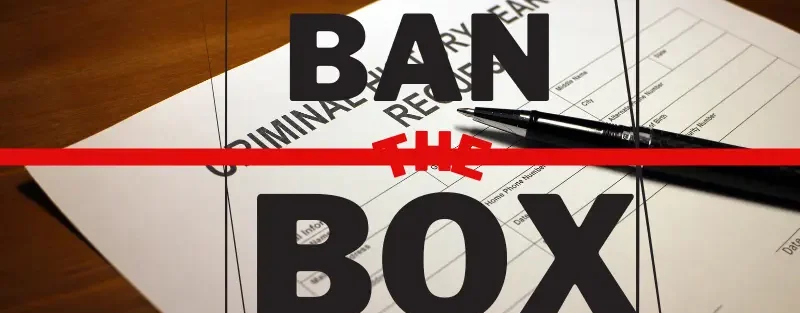“Ban the Box” started as a literal phrase meaning to ban the box on employment applications after the question “Have you been convicted of a crime” with a box for yes or no.
It’s gone much beyond that now, prohibiting any type of inquiry or criminal record check before a conditional job offer. The thought is that employers consider a job candidate’s qualifications first—without the stigma of a conviction or arrest record. Significantly, this also pinpoints for the applicant the reason they did not get the job—it was because of their offense record. When criminal record questions and inquiries are done at the same time as the other screening, applicants don’t know if their offense, handshake, or interview was to blame for not getting the position.
Nationwide, 37 states and over 150 cities and counties have adopted versions of “ban the box” for applicants. It’s not a rarity.
Aside from government employment, there are also laws applying to the private sector. 15 states and 22 cities and counties extend their fair-chance laws to private employment.
A key point to keep in mind is that Ban the Box is a “trendy” initiative. So, while 15 states and 22 cities currently have fair-chance laws, this is by no means static and other states and jurisdictions currently have efforts to adopt a version of ban the box. In fact, some states are going further with “clean slate” laws that we have written about. These initiatives seal or expunge offenses so that they may not be seen—prior to or after a conditional offer of employment.
There are resources to assist you in staying abreast of ban-the-box restrictions. https://www.nelp.org/insights-research/ban-the-box-fair-chance-hiring-state-and-local-guide is one resource.
PlusOne Solutions is developing a groundbreaking new tool to facilitate compliance tracking across all 50 states. This resource will enable you to search for “ban the box” restrictions by state or discover all states and jurisdictions with such laws. We remain committed to keeping compliance at the forefront of our service to clients. As we advance this project, we look forward to sharing more details in the coming months. Stay tuned!




